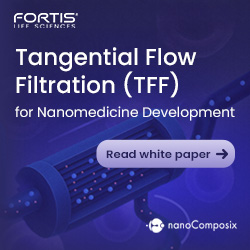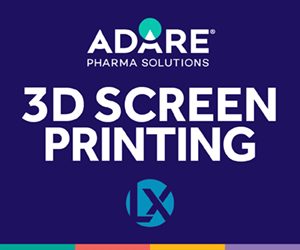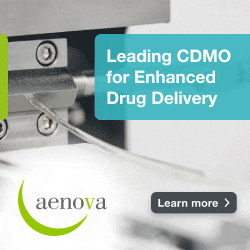Allena Pharmaceuticals Achieves Alignment With FDA on Phase 3 Program
Allena Pharmaceuticals, Inc. recently announced it has reached alignment with the US FDA on both the design of URIROX-2, its second pivotal Phase 3 trial of reloxaliase in patients with enteric hyperoxaluria, and its strategy to pursue a Biologics License Application (BLA) submission for reloxaliase using the accelerated approval regulatory pathway.
Allena’s URIROX program consists of two pivotal Phase 3 clinical trials, URIROX-1 and URIROX-2, which are designed to evaluate the safety and efficacy of reloxaliase in patients with enteric hyperoxaluria. URIROX-1 is currently enrolling patients, and Allena initiated URIROX-2 in the fourth quarter of 2018. The primary efficacy endpoint for URIROX-2 is the percent change from baseline in 24-hour urinary oxalate (UOx) excretion measured during Weeks 1-4, the same primary efficacy endpoint as URIROX-1.
“We are very pleased with the outcome of our regulatory interactions and appreciate the FDA’s guidance in finalizing the design of our URIROX Phase 3 program. As there is no precedent for the use of UOx excretion as a surrogate endpoint for kidney stone disease progression, the FDA’s engagement and specific feedback was essential during this process. We believe alignment on URIROX-2’s innovative trial design and disease-specific endpoints represents a watershed moment in the development of therapies for severe hyperoxaluria,” said Alexey Margolin, PhD, Chief Executive Officer of Allena Pharmaceuticals. “We look forward to working with investigators, clinicians and patient advocates as we advance reloxaliase as potentially the first therapeutic approved for patients with enteric hyperoxaluria.”
Key secondary efficacy endpoints for URIROX-2 include the proportion of subjects with a >20% reduction from baseline in 24-hour UOx excretion measured during Weeks 1-4, which is also a secondary endpoint for URIROX-1, and data on UOx change from baseline measured during Weeks 16 to 24. Twenty-four-hour UOx excretion is an established biomarker that is routinely measured in clinical practice to assess and manage patients at risk for enteric hyperoxaluria and calcium oxalate kidney stones. Data from multiple independent studies suggest that a therapeutic strategy that reduces 24-hour UOx excretion by approximately 20% could result in a 25%-50% reduction in the incidence of kidney stone recurrence and may increase renal survival. The FDA agreed that, if positive, biomarker data on 24-hour UOx excretion in URIROX-1 and URIROX-2 would be used for a BLA filing for accelerated approval of reloxaliase in enteric hyperoxaluria and that patients would continue in URIROX-2 to confirm clinical benefit during the long-term follow-up phase of the trial.
“Patients with enteric hyperoxaluria suffer from the sudden onset of debilitating kidney stone episodes in addition to the silent deposition of calcium oxalate crystals, both of which can damage the kidney, leading to progressive chronic kidney disease and ultimately end-stage renal disease. Based on the clinical data reported to date, I believe reloxaliase has the potential to offer a critical new therapeutic option to these patients, who currently have no approved pharmacologic interventions,” said Craig Langman, MD, Head of the Division of Kidney Diseases, Ann & Robert H. Lurie Children’s Hospital of Chicago and Isaac A. Abt, MD Professor of Kidney Diseases and Pediatrics at Northwestern University Feinberg School of Medicine. “Allena’s advancement of its Phase 3 clinical program highlights the potential of reloxaliase as a first-in-class oral enzyme that may effectively degrade oxalate within the gastrointestinal (GI) tract, reducing its absorption and accumulation throughout the body and its burden on the kidney.”
Allena’s URIROX program consists of two pivotal Phase 3 trials, URIROX-1 and URIROX-2, which are designed to evaluate the safety and efficacy of reloxaliase in patients with enteric hyperoxaluria.
URIROX-1 is a multicenter, global, randomized, double-blind, placebo-controlled study evaluating the safety and efficacy of reloxaliase in an expected 124 patients for a 4-week treatment period. It has the same primary and key secondary efficacy endpoints as URIROX-2. Based on enrollment progress to date, Allena expects to report topline data from URIROX-1 in the second half of 2019.
URIROX-2 (formerly Study 302) is a multicenter, global, randomized, double-blind, placebo-controlled study designed to evaluate the safety and efficacy of reloxaliase in patients with enteric hyperoxaluria, over a minimum treatment period of 2 years. The trial is designed to enroll 400 patients with 24-hour UOx excretion greater than or equal to 50 mg and a history of kidney stones, and will include patients with normal kidney function as well as chronic kidney disease (defined as an estimated glomerular filtration rate (eGFR) greater than or equal to 30). Patients will be randomized 1:1 to reloxaliase vs. placebo and will take 284 mg (equivalent to 7,500 units) of reloxaliase or placebo with each meal or snack up to five times per day, consistent with the eating patterns of patients with enteric hyperoxaluria. Allena initiated the study in the fourth quarter of 2018.
The primary efficacy endpoint of URIROX-2 is the percent change from baseline in 24-hour UOx excretion measured during Weeks 1-4, comparing mean reduction in UOx with reloxaliase to placebo.
Secondary endpoints include the proportion of subjects with a ≥20% reduction from baseline in 24-hour UOx excretion measured during Weeks 1-4 and percent change from baseline in 24-hour UOx excretion during Weeks 16 to 24. The primary long-term efficacy endpoint to confirm clinical benefit is the proportion of subjects with kidney stone disease progression, defined as a composite of either symptomatic kidney stones or finding of new or enlarged kidney stones using imaging, over a minimum treatment period of 2 years. Secondary long-term efficacy endpoints to confirm clinical benefit include change in eGFR from baseline and emergency room visits, hospitalizations or procedures for the management of kidney stones.
URIROX-2 incorporates adaptive design elements that, through sample size re-estimations, will, if necessary, allow for increases in sample size and duration of treatment, based on accrued kidney stone disease progression rates and the conditional probability of achieving ultimate statistical success for kidney stone disease progression in the long-term follow-up phase of the trial. Consistent with FDA guidance on the accelerated approval regulatory pathway, the data package for Allena’s accelerated approval filing is expected to include a conditional power estimate based on the effect of reloxaliase on reducing kidney stone disease progression, the effects of reloxaliase on reduction of UOx in the URIROX-1 and URIROX-2 trials, and further support for the model relating UOx levels to kidney stone disease progression, including available data obtained in the URIROX-2 trial. Allena expects to submit a BLA filing to the FDA after 400 patients have been randomized and followed for 6 months. For the long-term follow-up phase of the trial, subjects would continue in the study for a minimum treatment period of 2 years to confirm clinical benefit post-approval.
Hyperoxaluria is a metabolic disorder characterized by elevated urinary oxalate levels that may be due to either overproduction of oxalate by the liver from a genetic defect, known as primary hyperoxaluria, or from the excess absorption of oxalate from the diet, known as secondary hyperoxaluria. Secondary hyperoxaluria is further characterized either as enteric, resulting from a chronic and unremediable underlying GI disorder, or idiopathic, meaning the underlying cause is unknown. Kidney stones, typically the first sign of hyperoxaluria, are often painful and may require interventional procedures. Severe hyperoxaluria in settings of enteric and primary hyperoxaluria may also lead to kidney damage (nephrocalcinosis), chronic kidney disease and end-stage renal disease, which may lead to death.
Enteric hyperoxaluria is the more severe subset of secondary hyperoxaluria. Allena estimates that there are approximately 200,000 to 250,000 patients with enteric hyperoxaluria and kidney stones in the United States.
Reloxaliase is an orally administered, recombinant oxalate-degrading enzyme that is being developed for the treatment of severe hyperoxaluria. Reloxaliase targets oxalate in the GI tract in an effort to reduce the burden of both dietary and endogenously-produced oxalate. Reloxaliase has the potential to decrease the oxalate available systemically for deposition as calcium oxalate crystals or stones in the kidneys, as well as reduce long-term kidney complications. Reloxaliase is being evaluated in the ongoing pivotal Phase 3 URIROX-1 and URIROX-2 trials for patients with enteric hyperoxaluria. In addition, reloxaliase has been granted separate orphan drug designations by the US FDA for the treatment of primary hyperoxaluria and for the treatment of pediatric hyperoxaluria. In addition, the European Commission has granted orphan drug designation for reloxaliase for the treatment of primary hyperoxaluria.
Allena Pharmaceuticals, Inc. is a late-stage biopharmaceutical company dedicated to developing and commercializing first-in-class, oral enzyme therapeutics to treat patients with rare and severe metabolic and kidney disorders. Allena’s lead product candidate, reloxaliase, is a first-in-class, oral enzyme therapeutic for the treatment of hyperoxaluria, a metabolic disorder characterized by markedly elevated urinary oxalate levels and commonly associated with kidney stones, chronic kidney disease and other serious kidney disorders. For more information, visit www.allenapharma.com.
Total Page Views: 5490














